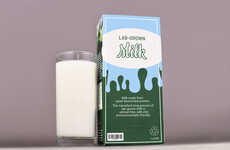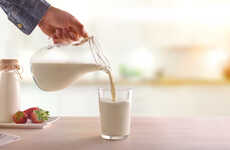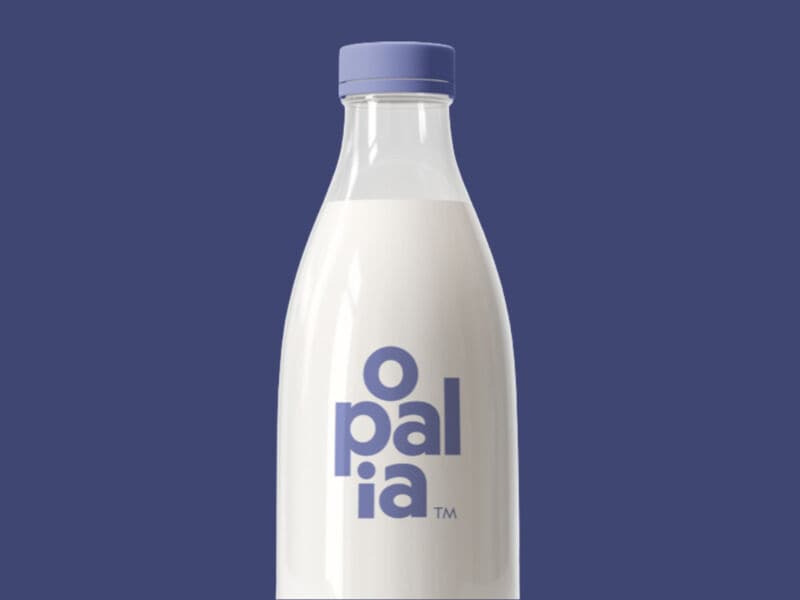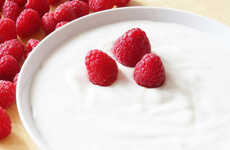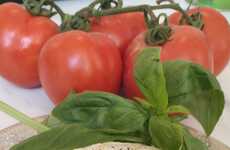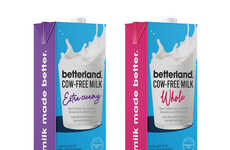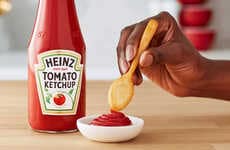
Opalia Makes Functional, Sustainable Whole Milk with Mammary Cells
Laura McQuarrie — July 21, 2022 — Lifestyle
References: opaliafoods & greenqueen.hk
Opalia is the first Canadian company to make milk with mammary cells and in doing so, it is introducing "a new era of dairy." This functional, sustainable and ethical alternative to farmed dairy products replaces fetal bovine serum (FBS.)
Last year, Opalia achieved a proof-of-concept whole milk product with an artificial mammary duct and its new alternative to FBS helps to reduce costs and more.
Now, the innovative company making "milk minus the cow" is ready to start pre-pilot scale production of its cell-based milk for use in non-animal dairy products. The possibilities for growth are endless and as the company sees it, "Our milk is made for all dairy lovers interested in having a more conscious and sustainable diet."
Last year, Opalia achieved a proof-of-concept whole milk product with an artificial mammary duct and its new alternative to FBS helps to reduce costs and more.
Now, the innovative company making "milk minus the cow" is ready to start pre-pilot scale production of its cell-based milk for use in non-animal dairy products. The possibilities for growth are endless and as the company sees it, "Our milk is made for all dairy lovers interested in having a more conscious and sustainable diet."
Trend Themes
1. Cell-cultured Milk Alternatives - With the development of sustainable and ethically made milk alternatives, there is a disruption opportunity in the dairy industry.
2. Artificial Mammary Ducts - The creation of artificial mammary ducts provides an opportunity for innovative methods of milk production using cell culture techniques.
3. Fbs-free Biotechnology - The development of new alternatives to fetal bovine serum in cell culture technology presents an opportunity for the biotech industry to create greener and more ethical products.
Industry Implications
1. Dairy Products - The dairy industry has an opportunity to explore cell-cultured milk as a sustainable and ethical alternative to traditional farming practices.
2. Biotechnology - The development of FBS-free alternatives in cell culture presents an opportunity for the biotechnology industry to further the production of cell-based products.
3. Sustainability - Sustainability-focused industries such as food and beverage can benefit from the development and production of cell-cultured milk as a sustainable and ethical product.
5
Score
Popularity
Activity
Freshness


